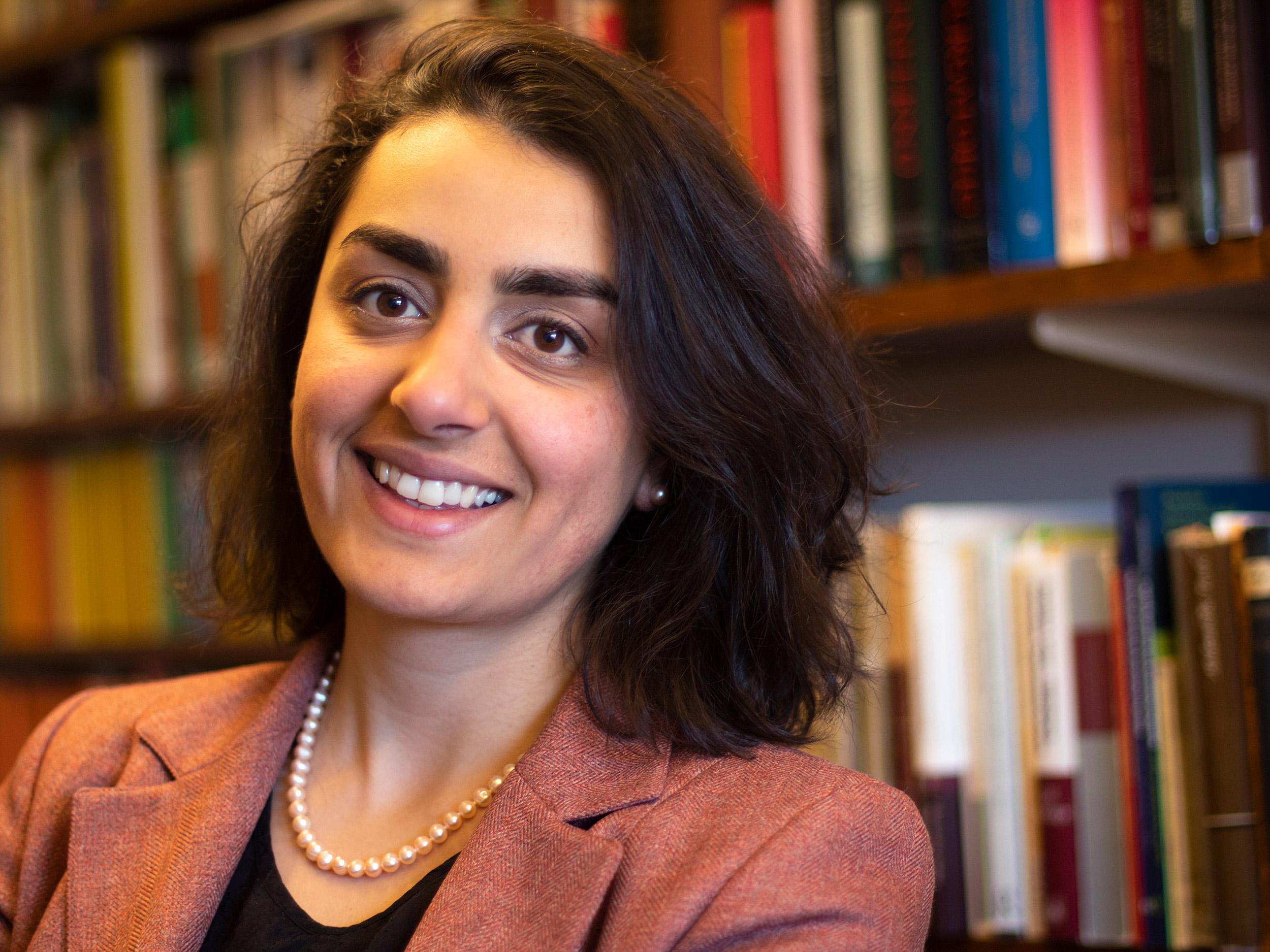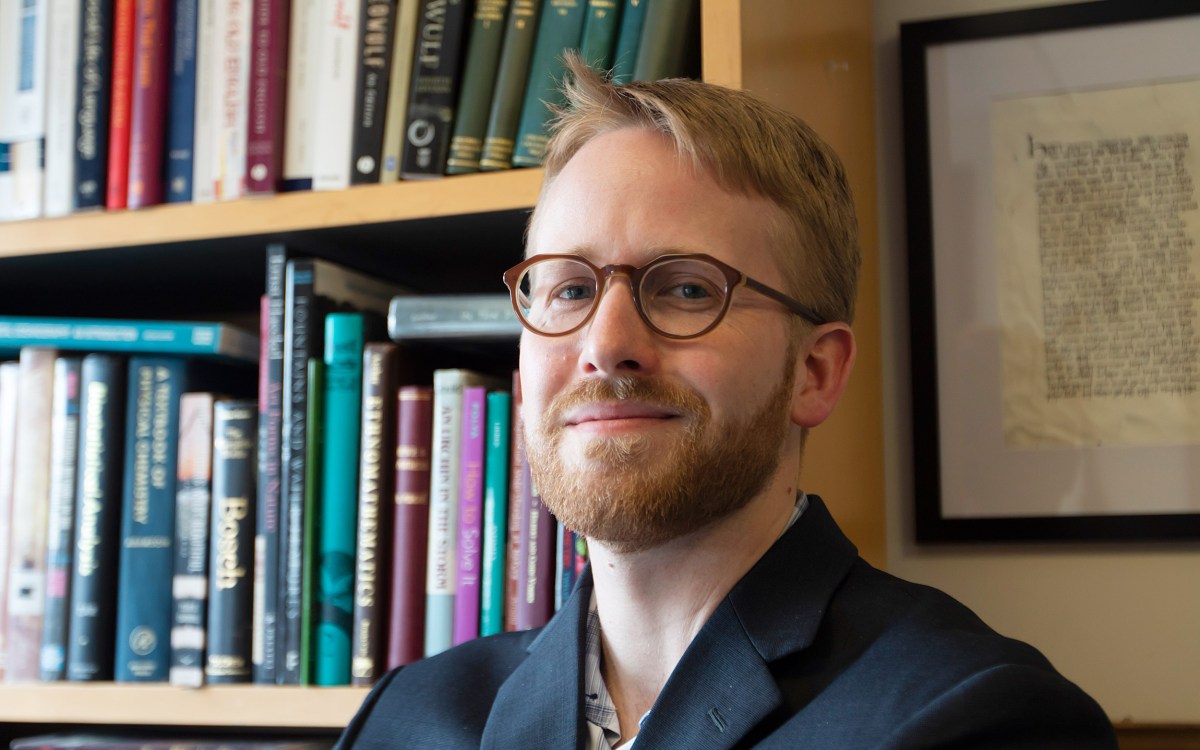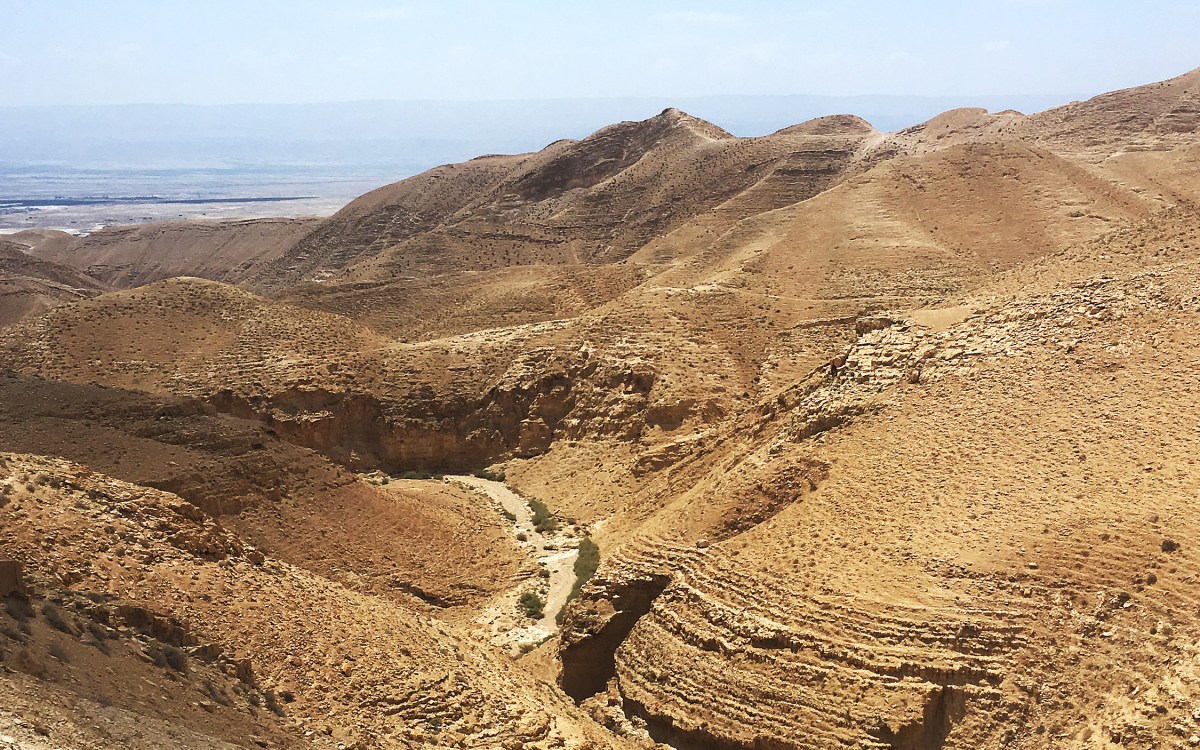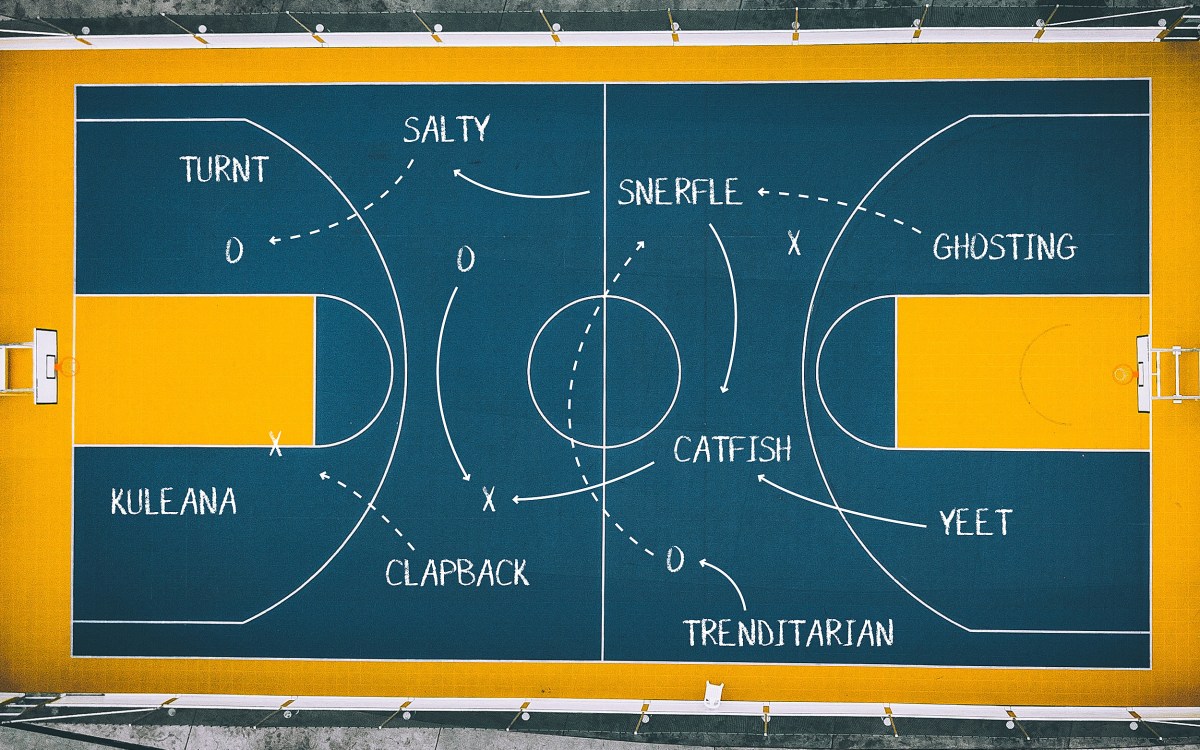
Kit Harington as Jon Snow and Emilia Clarke as Daenerys Targaryen.
Helen Sloan/HBO
Behind the ‘Thrones’
Course examines truth of medieval history depicted in the hit series
When the much-anticipated final season of “Game of Thrones” premieres Sunday on HBO, fans around the world will see some resolutions to the themes of war, romance, and family loyalty that have marked the hit show for the past eight years.
The epic battle for Winterfell, a reunion of the surviving Stark children, and the fallout from the union of Jon Snow and Daenerys Targaryen and subsequent discoveries about their lineage will be at the top of the minds of many viewers, including Racha Kirakosian, an associate professor of German and the study of religion.
For Kirakosian, this last season of “Game of Thrones” is an opportunity for both entertainment and scholarship. She has been teaching “The Real ‘Game of Thrones’: Culture, Society, and Religion in the Middle Ages” since 2017, using “Thrones” and other famous works of fantasy to engage students’ love of the genre while dispelling myths about medieval life and its depiction in popular culture.
“‘Game of Thrones’ takes tremendous inspiration from the medieval world,” Kirakosian said, pointing to J.R.R. Tolkien’s “The Hobbit” as one of the first books to make medieval Europe the default world of fantasy storytelling. “It’s important to understand how that fantasy creation got so entangled with the history of medieval Europe, and in order to get there we need to know something about medieval Europe.”
In one class, on the theme of “Learning and Philosophy,” students watch a clip from the show illustrating the lack of literacy and access to knowledge in Westeros, especially for women. Using the clip as a guide, Kirakosian explains the realities of literacy and education for medieval men and women and highlights the advent of the university system during the medieval period — a departure from the world of knowledge depicted in “Game of Thrones.”
“Students are able to see something they know from the show and then look at the actual historical sources that we have from medieval Europe,” said Kirakosian. “They can then realize how complex the image actually is and get a sense for historical depth and analysis.”
Racha Kirakosian, associate professor of German and the study of religion, has been teaching “The Real ‘Game of Thrones’: Culture, Society, and Religion in the Middle Ages” since 2017.
Photo by María F. Sánchez

Ingrid Goetz ’19 credited Kirakosian and the course with helping her challenge her assumptions about the Middle Ages.
“The course readings were well thought-out and encouraged me to look at both the world of fantasy and the environment around us in a new light,” said Goetz, who is concentrating in the history of art and architecture. Learning about the developments in architecture and civic society in medieval Europe “definitely encouraged me to look deeper and examine how modern life works.”
At the same time that students learn about the medieval history that informs the fictional world of Westeros, they also learn how to dissect the themes and tropes of “Game of Thrones” and view them in the context of the fantasy genre over the centuries.
To do this, Kirakosian focused the latter portion of the course on the humanist and romantic traditions of the 18th and 19th centuries, during which nationalism, Orientalism, and patriarchy became ingrained in popular interpretations of medieval life.
“This period was a time of reimagining a past infused with magic, together with an imagining of ‘the East’ in contrast to forming Western nations,” said Kirakosian. Understanding how these themes developed and how they continue to manifest in current pop culture is necessary, she added, if we are to become “reflective consumers” of popular culture.
“There is such a cultural mythology built up around the Middle Ages, from chivalry and the knights in shining armor tropes to the idea of the ‘Dark Ages’ as a time of plague and suffering,” said Goetz. “How can these exist at the same time? I’ve always wanted to interrogate and investigate that.”
While students are anticipating a climactic end for “Game of Thrones,” Kirakosian hopes that more of them channel their curiosity about fantasy stories into study about the medieval period.
“One reason I teach this class is to bring the Middle Ages alive, and I want to show that terms like the ‘Dark Ages’ are pejorative and incorrect,” said Kirakosian, who will teach the course in fall 2020 as part of the new General Education program. “There is an ongoing relevance of the study of the past for our ability to understand our world today, to understand ourselves and how we position ourselves to what we see happening around us and to us.”







